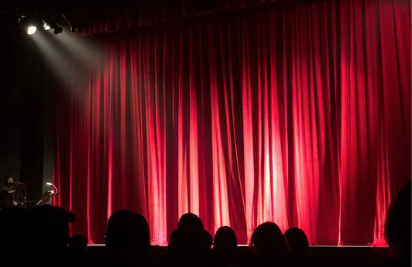The Surge of Book Bans
Book bans have been seen all over America including in Gardner Edgerton. This practice blocks free thought and ideas from students.

florian.b
Feb 27, 2023
Book banning is the most widespread form of censorship in the United States, with children’s literature being the primary target. Advocates for book bans fear that children will be swayed by its contents which they regard as potentially dangerous. They commonly fear that these publications will present ideas, raise questions, and incite critical inquiry among children that parents, political groups, or religious organizations are not ready to address or that they find inappropriate.
According to MTSU, censorship — the suppression of ideas and information — can occur at any stage or level of publication, distribution, or institutional control. Some pressure groups claim that the public funding of most schools and libraries makes community censorship of their holdings legitimate.
Censorship can be seen on a regular basis, like not being able to play music with curse words at school. However, the recent surge of book banning is a little different.
MTSU informs “Book banning, a form of censorship, occurs when private individuals, government officials, or organizations remove books from libraries, school reading lists, or bookstore shelves because they object to their content, ideas, or themes. Those advocating a ban complain typically that the book in question contains graphic violence, expresses disrespect for parents and family, is sexually explicit, exalts evil, lacks literary merit, is unsuitable for a particular age group, or includes offensive language”.
Many take certain parts of books out of context. Opposing sides are quick to point out that the problematic material being objected to can be seen in all books, and are up to each person’s interpretation, giving leeway to bias. Another argument made is that all of these resources are still available to students with their unfiltered access to the internet.
According to CBS “During the 2021-2022 school year, more than 1,600 books were banned from school libraries. The bans affected 138 school districts in 32 states, according to a report from PEN America, an organization dedicated to protecting free expression in literature”.
Book bans have been seen all over America including in Gardner Edgerton. This practice blocks free thought and ideas from students.
An example in our town is stated by Kansas Reflector “Two parents have taken the lead in trying to take the book out of school circulation. Bud Campbell, the father of four children in the district, said he found out about the book in August 2022 from a Facebook group. Though he hasn’t read the full novel, he didn’t approve of the excerpts he had read. Campbell hopes to get it banned from the curriculum and library.”
Even though the father had not read the full book he was quick to make assumptions and take parts out of context in an effort to ban the book.
On Kansas Reflector another parent’s opinion was “Schultz said her children had read the book with no problems, and that excerpts read by parents for shock value were taken out of context, with explicit material occurring in less than a dozen pages.”
Due to schools having public funding, many people think they have the right to control the schools and the curriculums. Other sides point out that while education is publicly funded, the parents do not decide the content being taught in a classroom, and that those seeking to ban books should look to private schools instead.
People are banning books for violence and inappropriate content. This brings about interesting implications, given that students can still access this content via the internet, however, this does not seem to be a primary concern within the discussion. Whether or not this fact will have any impact on the general decision remains unclear.





